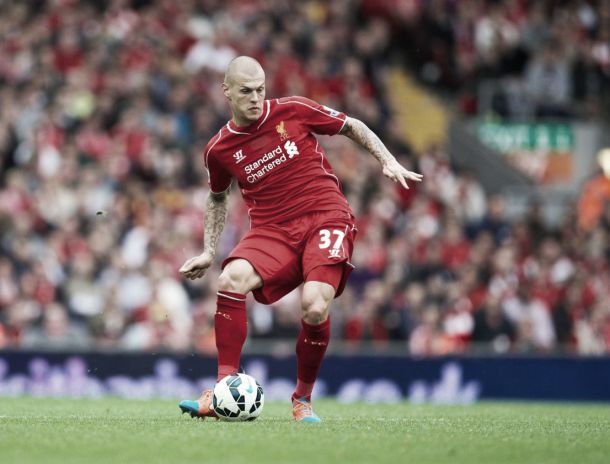Liverpool defender Martin Skrtel has revealed the club's defensive spending spree over the last few seasons has encouraged him to up his level of performances.
Brendan Rodgers has spent £45 million on centre-backs over the last 24 months, bringing in Mamadou Sakho (£18m), Tiago Ilori (£7m) and Dejan Lovren (£20m) to add extra competition to the central position.
Ilori's season-long loan at Ligue 1's Bordeaux has meant Skrtel has not yet been really tested for his starting spot, consistently being chosen ahead of Sakho and Lovren - but Skrtel believes that the extra pressure has benefitted him.
"I think that it’s only a good thing when new players come into the team," said Skrtel, who arrived on Merseyside from Zenit St Petersburg back in 2008.
"It makes you feel the pressure to make you work even harder, it pushes you to work very hard and do your best in every single session.
"That is the key for every single player, not only the defenders."
Skrtel has become one of the most accomplished centre-backs in the Premier League, becoming a crucial element of the Reds' shrewd defensive displays in recent months.
Since switching to a back-three formation, the Slovakian has excelled, but the 30-year-old will return to a more familiar back-four after serving his three-match suspension for an incident in Liverpool's 2-1 loss against Manchester United.
Skrtel's availability will surely be taken advantage of by Brendan Rodgers when the Reds face Aston Villa and an in-form Christian Benteke in the semi-finals of the FA Cup this Sunday.
But Skrtel, who played at Wembley under Kenny Dalglish in 2012, insists he's prepared for any system.
"The manager changed the formation and we started playing well but for me as a defender it is not a big difference if you are playing in a three or the four," added Skrtel.
"The first thing for you is defending and trying to protect your goal, and trying to stop them from scoring goals.
"We have seen the system with the three at the back was working for us and we will see for the future if we stick with it or change again."










































